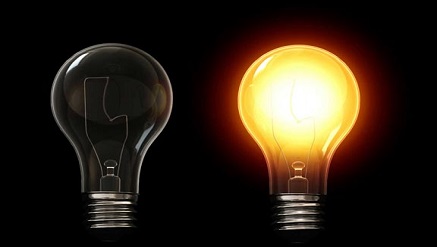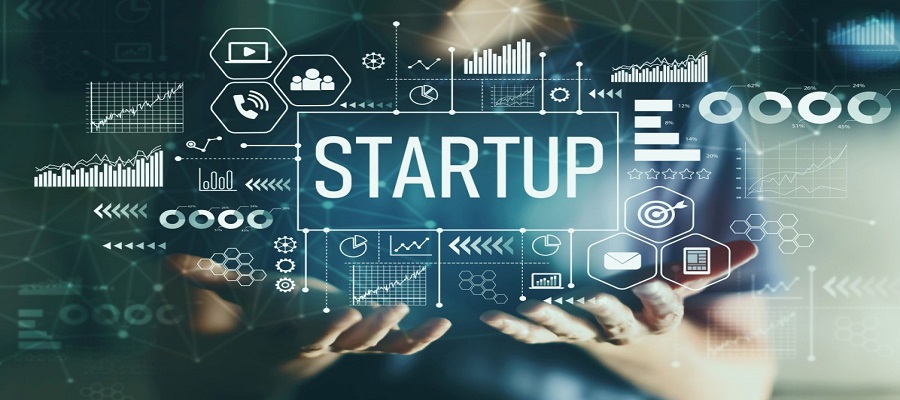General News
How and Why Goodluck Failed to Fix Electricity

Prof. Chinedu Nebo, former minister of Power, has asked the new government to wield the big stick which the immediate past government could not muster to deliver reliable electricity power supply to Nigerians.
The Guardian reported that Nebo also gave excuses why the government he served for two years and three months failed to improve electricity supply in the country.
He advised President Muhammadu Buhari, to “Wield the big stick and ensure there is gas to power if power generation is to improve.’’
Blaming inadequate gas supply and vandalism for the failure of the government he served, Nebo claimed that there are huge investments in the National Integrated Power Project (NIPP) and other investments in power generation had led to a historic 6000 megawatts installed generation capacity at handover.
Nebo said: “I hate excuses. But I would say that commitments were made to give us gas, but we didn’t get the gas. It is just as simple as that. It is very painful. I also blame vandalism.
According to the Guardian, but much of the blame goes to the oil firms and gas producers for what I consider their hypocrisy.
“They have been hypocritical with this whole issue of making sure that we have gas and helping us bring Nigerians out of darkness.”
He accused gas producers of being more interested in exporting the nation’s gas and diverting what remained for the domestic market to industries, instead of the power sector where it is greatly needed.
On generation, he said: “I regard the NIPP project as a huge benefit to this country. It wasn’t President Goodluck Jonathan’s administration that started it. It was started under the Olusegun Obasanjo administration, but it was left to fizzle out until President Jonathan came on board. He re-energised it and got all the three arms of government to agree to continue and complete the 10 plants.
‘‘In fact, the NIPP projects are contributing more power than the legacy Power Holding Company of Nigeria (PHCN) power plants to the national grid today. I would say that Jonathan’s administration did phenomenally well. Most of the NIPP projects had been completed, with a few on-going.
‘‘Again, privatisation and commercialisation of these plants are still ongoing. The completion of the privatisation of the other assets of PHCN was wonderful, because the entire process was adjudged to have been very transparent by global referees and umpires who observed the whole process and who certified it was very accountable.
“Since then, the private sector has injected so much to revive ailing turbines, much more than government could ever have found the money to do. Today, we have Egbin Power Plant adding over 220mws, Ughelli over 400mws.
But my two regrets, however, are that we lost the war against vandalism and we lost the war against inadequate gas supply.
“This new government should take a cue and make sure that the petroleum sector does what it ought to do to make sure that there is enough gas going to the power plants. It is very critical. If the new administration does not do that, Nigerians are going to keep suffering in darkness.”
On vandalism, he noted: “I do hope that the administration would also fight vandalism and bring the vandals to their knees. If we don’t do that, we are still going to have a problem. Every two weeks, the gas pipelines are blown up.
It takes two weeks to fix them only for them to be blown up again within 24 to 48 hours of fixing.
‘‘It cost over N120 million and thereabouts every month to fix the pipelines that are damaged. But recently, it is costing over N1billion plus to make sure that the integrity of the transportation of the gas-to- pipeline is maintained.
“I think it is scandalous that we produce over 5 billion scf of gas every day, sell 4 billion and retain only 1 billion scf for local use. The one for local use is preferentially given to industries and not to power, starving the power sector of the needed gas to industrialise this country and I think that is a shame.”
He was full of encomiums for Jonathan, noting that a good foundation had been established in power generation capacity.
He said: “For generation, as I have said, the NIPP projects have been great and many of them are coming on board, and more and more plants would be ready. If there is gas, it shouldn’t take long before every Nigerian would know that a lot happened in the last few years with regard to the power sector.
‘‘It is very important that we look at the score cards.
For two years and three months, I was Minister of Power. Looking back, it hasn’t been a bed of roses. Even if it were a bed of roses, when you have roses, you have thorns. In fact, sometimes, we have seen more thorns than the roses. But we are grateful to God that the power sector has really come a long way.”
“Thankfully, a lot of funding has being injected into the transmission infrastructure. The grid is being strengthened, and for the first time, we were able to hit a peak of over 100,000 mega watts hours in a day within the Jonathan administration that the grid handled. We had less collapsing of the grid. We used to have systems collapse all the time. It is now minimised.
“With regards to distribution, privatisation, of course, has helped. Discos are now under the private sector. One or two are doing well, and the others are either average or not doing well. But I think government should continue to create an enabling environment. The hich will now give the power to the Discos. So, the Discos are suffering, simply because there is not enough power, and many of them are not able even to find enough money to keep them afloat. They need money in order to remain afloat.’’
On how to solve the power supply problem, Nebo said: “The best way, the quickest way, the most inexpensive way of making sure that Nigerians get power, adequate power and eventually 24/7 power is embedded generation or distributed power.
‘‘If you have embedded generation, 10mws or 20mws, by the time you put 20mws in 10 different places, you would have 200mws. You can do that in one year. But for a mega 200, 400, or 500mw plant, it is a different thing entirely. By the time you build that, starting from concept, to design and financing, getting international partners, the partial risk and national sovereign guarantee, it would have taken five to six years.
“While in one year, you can have 50 of 20mws plants that translate to 1000mws, trying to do one mega plant of 1000mws takes five years. This means that we can actually give Nigerians 2000mws of power by embedded generation or distributed power every year, till the year 2020. With that, we will meet our target.”
He also called for action on the Petroleum Industry Bill (PIB), noting that it would liberalise the market, and make it easier for more gas to be available.
The Guardian discovered that many people residing in the suburbs and villages are connected directly to the electricity poles without meters and they pay cash monthly, to marketers.
One such customer told The Guardian: “I approached the electric people in my area of Lagos for a meter and I was told that prepaid meters are not available. One of the marketers advised that I should pay N25,000 to get an account generated for me to enable me get connected and get bills from the Disco on a monthly basis, which I agreed.
‘‘The marketer collected the money from me without proof of payment and connected electricity supply to my apartment that same day with a promise to send me a bill by the end of that month. I was surprised at the end of that month, the bill was not sent, but the marketer came to demand N3, 000, which is supposed to be my monthly bill. He collected it with another promise to send the bill by the end of the second month, which I never got. This continued until I complained to a higher authority before they now started sending bills to me.”
The Guardian also discovered that most of the shops and houses in Aja, Okota, Agege, Sango, Ikorodu, Epe areas do not have meters, but rather, the marketers collect the money in cash every month.
The investigation also showed that most of the houses in the villages across the country are not connected to electricity meters, though the residents pay monthly to marketers.
For example, virtually all the houses in Atuagbo Uneah in Esan Central Local Council of Edo State are not connected to meters, but directly to the electric poles. The customers do not get monthly bills, but pay cash directly to marketers.
Also, in Npkehi, in Owerri North Local Council of Imo State, residents make monthly payments to workers of Enugu Disco who neither give them bills nor receipts.
The fact is that some marketers are feeding fat on the desperation of Nigerians with the excuse of non-availability of prepaid meters.
Lamenting the poor power supply in the country, Buhari at his inauguration, had said that despite the about $20 billion expended in the electricity sector in the last 16 years, no significant achievement has been recorded.
He however, vowed to tackle the issue of power supply during his tenure.
General News
Nigeria to Launch $40 Million Fund for Tech Startups

Nigeria has plans to launch a $40 million fund to support early-stage tech startups, aiming to strengthen the country’s entrepreneurial ecosystem and reduce young companies’ reliance on private investors.

The fund will be equally financed by the Japan International Cooperation Agency (JICA) and the Nigeria Sovereign Investment Authority (NSIA), which manages the national sovereign wealth fund.
Kashifu Inuwa Abdullahi, director general, National Information Technology Development Agency (NITDA), confirmed the final agreement would be signed within the next month.
The initiative is part of Nigeria’s Startup Act, adopted in October 2022, which aims to create a favorable environment for startups through tax incentives and financial support.
The act established a 10 billion naira (approximately $8.6 million) annual fund to finance certified startups through seed funding, grants, or loans.
According to Disrupt Africa, Nigeria’s startup ecosystem attracted over $2 billion in investments between January 2015 and August 2022, positioning the country as Africa’s leader.
Companies like Flutterwave, Andela, and Opay achieved multi-billion-dollar valuations.
, fundraising dropped to $224 million in 2023, down from $531 million in 2022 and over $1 billion in 2021.
This decline highlights the need for government intervention to revitalize the tech ecosystem amid investor caution.
The new fund marks a significant step for Nigeria, which aims to foster local innovation.
Currently, 12,948 companies are registered as startups, benefiting from a three-year tax exemption. Low awareness of the law’s benefits has prompted the government to plan a nationwide information campaign.
By facilitating access to funding, the initiative could strengthen support for existing startups and stimulate new tech ventures, reinforcing Nigeria’s position as a leading hub for digital innovation in Africa.
General News
Nigeria, Kenya among Nations Running out of HIV Drugs – WHO

Eight countries – six of them in Africa, including Nigeria, Kenya and Lesotho – could soon run out of HIV drugs following the US government’s recent decision to pause foreign aid, the World Health Organization (WHO) has said.

US President Donald Trump announced the freeze on his first day in office in January as part of a review into government spending.
“Disruptions to HIV programmes could undo 20 years of progress,” Tedros Adhanom Ghebreyesus, WHO chief warned.
It could also lead to more than 10 million additional cases of HIV and three million HIV-related deaths, he added, noting this was “more than triple the number of deaths last year”.
Nigeria, Kenya, Lesotho, South Sudan, Burkina Faso and Mali – as well as Haiti and Ukraine – would run out of live-saving anti-retroviral (ARV) medicines in the coming months, Dr Tedros said at a press conference on Monday.
Trump’s executive order paused foreign aid support for an initial duration of 90 days in line with his “America First” foreign policy.
It has affected health programmes around the world, leaving shipments of critical medical supplies, including HIV drugs, greatly hampered.
The majority of the US Agency for International Development’s (USAID) programmes have since been terminated.
Despite a waiver issued in February for the US’s ground-breaking HIV programme, its work has severely impacted.
Known as the US President’s Emergency Plan for Aids Relief (Pepfar), it relies on logistical support from USAID and other organisations hit by the turmoil.
It has led to the “immediate stop to services for HIV treatment, testing and prevention in more than 50 countries”, Dr Tedros said.
Launched in 2003, Pepfar has enabled some of the world’s poorest people to access anti and has been credited with saving more than 26 million lives worldwide.
During his first days in office, Trump also announced that the US would pull out of the WHO, affecting funding for the global health agency.
“The US administration has been extremely generous over many years. And of course, it’s within its rights to decide what it supports and to what extent,” Dr Tedros said.
“But the US also has a responsibility to ensure that if it withdraws direct funding for countries, it’s done in an orderly and humane way that allows them to find alternative sources of funding.
An estimated 25 million people are living with HIV in sub-Saharan Africa, which is more than two-thirds of the global total 38 million people living with the disease.
In Nigeria, nearly two million people are living with HIV, with many relying on receiving aid-funded medicines.
Kenya has the seventh-largest number of people living with HIV in the world, at around 1.4 million, according to WHO data.
“We ask the US to reconsider its support for global health, which not only saves lives around the world, it also makes the US safer by preventing outbreaks from spreading internationally,” Dr Tedros said.
General News
NIN Enrolment Hits 117.3m – NIMC

National Identity Management Commission (NIMC) has announced that as of February 28, 2025, the number of Nigerians enrolled in the National Identification Number (NIN) database has reached 117.3 million.

This marks a significant increase of over seven million registrations since September 2024, when the figure stood at 110 million.
Gender and State Distribution
The latest statistics reveal that 56.5% of registered individuals are male, totaling 66.2 million, while 43.5% are female, at 51.07 million.
Among states, Lagos leads with 12.6 million registrations, followed by Kano with 10.2 million and Kaduna with 6.9 million.
This is consistent with the high populations in Lagos and Kano.
Other states with notable enrolment numbers include:
Ogun (4.9 million),
Oyo (4.5 million),
Katsina (4 million).
In contrast,
Bayelsa (758,111),
Ebonyi (990,775),
have the lowest enrolment figures.
The government has been emphasising the need for citizens to link their NIN to access essential services, including social services, financial transactions, and telecommunications.
A well-developed and accessible digital ID system is seen as vital for effective digital governance.
Beyond strengthening security and promoting transparency, this initiative aims to enhance the efficiency of service delivery across the country.

 Broadcasting2 days ago
Broadcasting2 days agoPublic Outrage, Legal Threats as Abuja Council Demands N500, 000 as TV Levy

 E-Financial2 days ago
E-Financial2 days agoFIRS Partners Flutterwave for Digital Payment Collection

 Telecom2 days ago
Telecom2 days agoNigeria Charts New Course to Bridge Gender Digital Divide at UN’s CSW69

 General News2 days ago
General News2 days agoNIN Enrolment Hits 117.3m – NIMC

 E-Financial2 days ago
E-Financial2 days agoZuriel Oduwole, Sterling One Foundation, and Sanwo-Olu Champion Gender Equality and Youth Empowerment

 E-Financial2 days ago
E-Financial2 days agoBOI Launches N10Bn GLOW Fund for Female Entrepreneurs

 News2 days ago
News2 days agoFG Invests N2.5Bn in Satellite Surveillance System to Revolutionise Mining Sector

 News2 days ago
News2 days agoTinubu Appoints Olukayode Gregory Pioneer Registrar of New Federal University



























